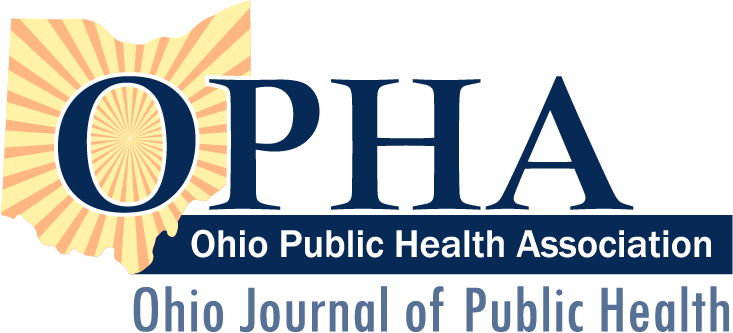“When COVID Hit”: Psychosocial Impacts and Coping Strategies Among Ohio’s Public Health Workforce
Abstract
Background: The COVID-19 pandemic was associated with widespread occupational stress and burnout. Given the duties of public health, alongside the politicization of public health mandates in Ohio, we attempted to understand the potentially unique psychosocial impact of the pandemic on Ohio’s public health workforce.
Methods: A mixed method study was conducted to understand the factors associated with everyday discrimination, burnout, perceived stress-anxiety, and commitment to continue in public health. Ohio public health workers were invited to participate in an anonymous online survey and/or confidential phone interview. Descriptive statistics, bivariate tests, and stepwise linear regression were calculated. Interpretive phenomenological analysis was used to evaluate the qualitative interview data.
Results: The majority reported symptoms of burnout, and nearly 1 in 3 indicated readiness to leave the public health workforce. Public facing response duties correlated with everyday discrimination, burnout, and commitment to continue. Everyday discrimination was associated with perceived stress-anxiety. Perceived stress-anxiety was linked to burnout. Job satisfaction correlated with both burnout and commitment to continue. Two qualitative themes focused on psychosocial impact and coping were organized into 7 subthemes which elaborated our understanding and affirmed the quantitative findings.
Conclusion: The findings represent a critical time of the COVID-19 pandemic and potential fallout on Ohio’s public health workforce. Work is needed to develop and maintain a resilient workforce. To prevent burnout and loss of institu-tional knowledge, effective coping and capacity building efforts are needed to tackle the unpredictable conditions of public health. Initiatives to address the public’s understanding and normative response to public health efforts are war-ranted.
Keywords: COVID-19, Public health workforce, Ohio, Mixed methods
How to Cite:
Knippen, K., Sears, J., Maziarz, L., Bussard, M. & Wilken, L., (2024) ““When COVID Hit”: Psychosocial Impacts and Coping Strategies Among Ohio’s Public Health Workforce”, Ohio Journal of Public Health 6(2), 1-9. doi: https://doi.org/10.18061/ojph.v6i2.9955
Rights: Kerri Lynn Knippen, Jeanelle S. Sears, Lauren Maziarz, Michelle Bussard, Lara Wilken
Downloads
Download PDF
